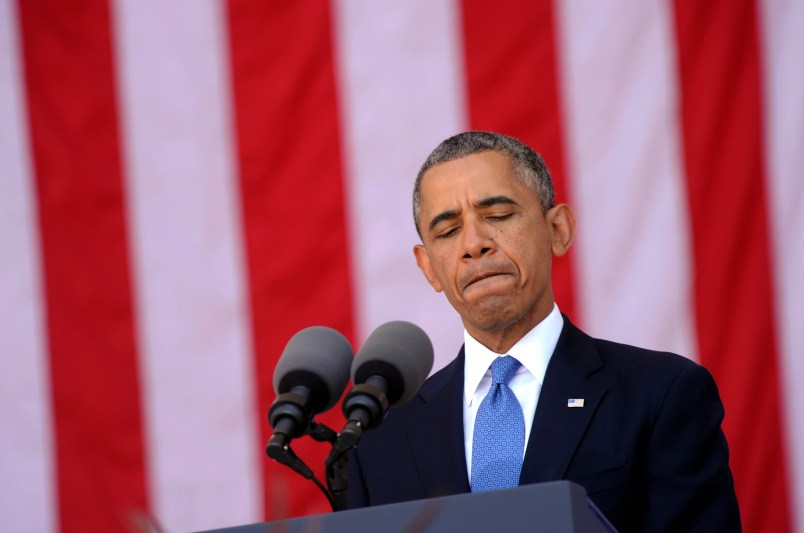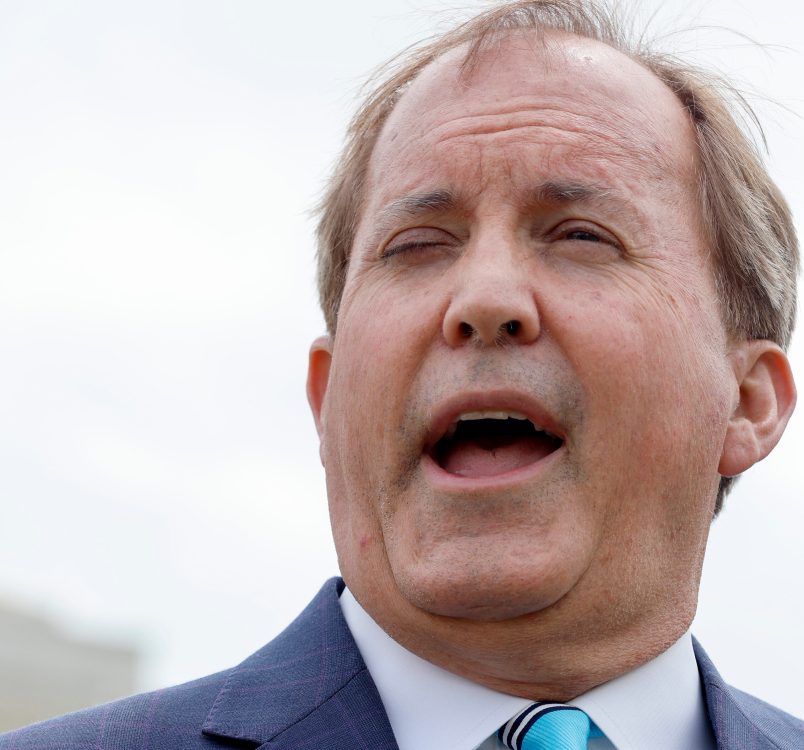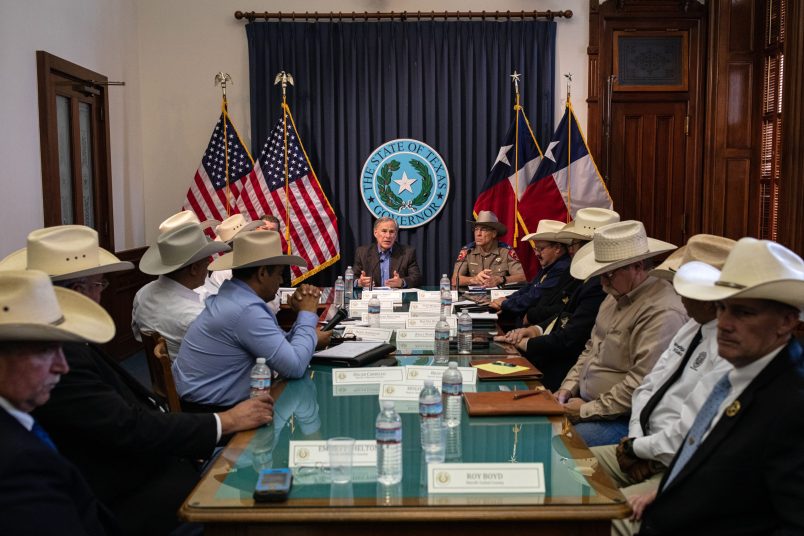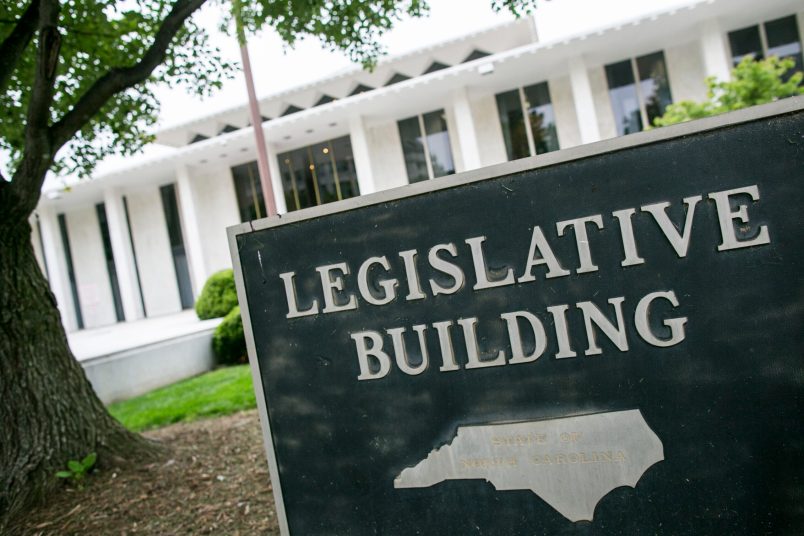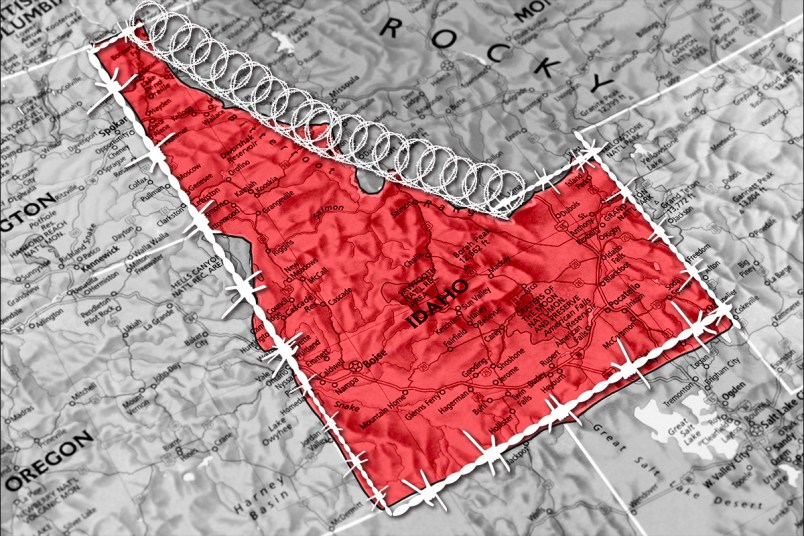Republican politicians and conservative pundits alike have been apoplectic in recent days over President Obama’s approach to combating the Islamic State terror group in the Middle East in general and his administration’s hesitance to label the group’s militants as Islamic in particular.
The outrage surged against a backdrop of brutal attacks carried out by the terror group, also known as ISIL or ISIS, as well as a pair of shootings at a free speech event and a synagogue in Copenhagen, Denmark.
By Thursday, the right’s rage had spiraled into a litmus test in which potential 2016 Republican presidential contenders were leaping to tell the public whether they believed Obama really “loves America.”
In some ways, the latest test unfolded much the same way as the last one did. In that case, the issue of the moment was unexpectedly and suddenly about vaccine mandates.
Here is a brief look at how the GOP’s latest debate took root:
Obama invokes Crusades at National Prayer Breakfast
This outrage boomlet can roughly be traced back to Obama’s remarks just over two weeks ago, on Feb. 5, at the National Prayer Breakfast.
The President invoked the Christian holy wars of Antiquity as well as America’s civil rights struggles to argue that non-Muslims shouldn’t feel superior about religious violence.
“Lest we get on our high horse and think this is unique to some other place, remember that during the Crusades and the Inquisition, people committed terrible deeds in the name of Christ,” he said. “In our home country, slavery and Jim Crow all too often was justified in the name of Christ.”
The backlash to those remarks lasted for days. The hosts of “Fox and Friends,” “Morning Joe” host Joe Scarborough, and former Arkansas Gov. Mike Huckabee (R) were quick to lambaste the President for criticizing Christianity instead of directly condemning radical Islam. One member of Congress, Rep. John Fleming (R-LA), went as far as to say Obama’s remarks amounted to a defense of the Islamic State.
The White House avoids calling ISIL ‘Islamic’
Sen. Ted Cruz (R-TX) called Obama an “apologist for radical Islam” because he wouldn’t refer to the Islamic State using that phrase. Rep. Mo Brooks (R-AL) even argued that Obama refused to utter the words “radical Islam” because he attended a Muslim school when he was younger.
But Obama explained this week at the White House’s Summit on Countering Violent Extremism that the reason his administration doesn’t refer to the terror group as “Islamic” is because doing so would grant the extremists the legitimacy they seek.
“There’s been a fair amount of debate in the press and among pundits about the words we use to describe and frame this challenge, so I want to be very clear about how I see it,” Obama said. “Al Qaeda and ISIL and groups like it are desperate for legitimacy. They try to portray themselves as religious leaders, holy warriors in defense of Islam. That’s why ISIL presumes to declare itself the ‘Islamic State.'”
He added that the U.S. was at war with militants who have “perverted Islam,” and not at war with Islam itself.
The White House doesn’t refer to beheaded Egyptians as “Christians”
Earlier this week, the right’s outrage was channeled similarly toward the White House for omitting the word “Christians” when identifying the victims of a mass beheading in Libya.
The White House issued a statement Monday following the release of a video that purported to show the beheadings of 21 Egyptian Coptic Christians by a Libyan militant group claiming affiliation with the Islamic State. The statement called the attack a “despicable and cowardly murder,” but referred to its victims as “Egyptian citizens.”
Obama effectively shut down that specific line of attack Wednesday in a Los Angeles Times op-ed piece. He wrote that the Islamic State had “spread its barbarism to Libya with the murder of Egyptian Christians.”
Junior state department official says US “can’t kill our way out” of war
The conservative blogosphere was particularly aflame after a junior State Department official argued the U.S. couldn’t “kill our way out of this war” with the Islamic State without addressing the abysmal economic conditions in the Middle East.
In just two days, State Department spokeswoman Marie Harf’s argument was transformed from a two-pronged approach to conflict — kill terrorists and work to prevent young people from turning to violent extremism in the first place — to simply giving jobs to terrorists and hoping for the best.
Harf originally made the comments to a skeptical Chris Matthews on MSNBC’s “Hardball.” She then went on to defend those remarks on CNN and said the statement was perhaps “too nuanced” for her critics to understand. She ultimately told MSNBC’s “Morning Joe” that she wouldn’t “take a mulligan” on her original remarks.
The more Harf appeared on cable news, the more incensed her detractors became. While some critics pointed out what they saw as flaws in her argument, a few conservative commentators chose to instead photoshop Harf into images of famous generals or dismiss the blonde spokeswoman for looking as if she were “ready to take on rush week at Arizona State University.”
Obama doesn’t “love America”
Then on Wednesday night, former New York City Mayor Rudy Giuliani (R) gave voice to something certain conservative pundits had been saying for a while — that the President’s “affinities” lie outside the United States — in the simplest possible terms when he reportedly said he didn’t think Obama “loves America.”
Politico reported that Giuliani made the comments at a private dinner in Manhattan attended by Wisconsin Gov. Scott Walker (R). The former mayor managed to simultaneously dog-whistle at Obama’s multicultural upbringing in his remarks.
“I do not believe, and I know this is a horrible thing to say, but I do not believe that the president loves America,” Giuliani said, as quoted by Politico. “He doesn’t love you. And he doesn’t love me. He wasn’t brought up the way you were brought up and I was brought up through love of this country.”
He didn’t stop there. The former mayor barreled forward Thursday over coffee on “Fox and Friends,” explaining that he thought Obama was a “patriot” but criticized America too much.
“I’m not questioning his patriotism. He’s a patriot, I’m sure,” Giuliani said. “What I’m saying is that in his rhetoric, I very rarely hear him say the things that I used to hear Ronald Reagan say, the things I used to hear Bill Clinton say, about how much he loves America.”
In a Thursday morning interview on CNBC, Walker was asked about Giuliani’s remarks but declined to comment on whether he believed Obama “loves America.”
Later in the day, Sen. Marco Rubio (R-FL) stood apart from his GOP counterparts by openly saying he has “no doubt” Obama loves the country, although he disagrees with the President’s policies.
And before long, Louisiana Gov. Bobby Jindal (R) issued a statement declaring his refusal to condemn Giuliani’s comments because the gist of them was “true.”
With that, it was official: Whether the President of the United States actually loves the United States had become the debate du jour among potential 2016 Republican presidential candidates.


